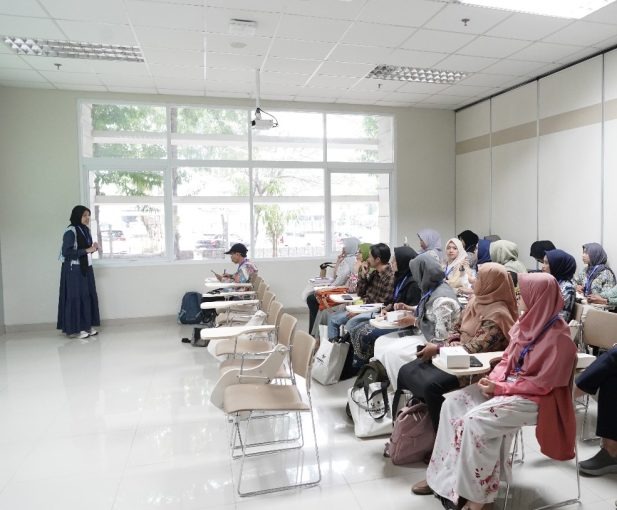
On Saturday, 21 September 2024, the Faculty of Agriculture at Gadjah Mada University (UGM) hosted the 14th National Agricultural Research Seminar with the theme “Optimization of Land Use and Adaptation to Global Climate Change for Achieving Food Sovereignty.” This seminar was part of the 78th Anniversary celebration of the Faculty of Agriculture at UGM. The seminar featured presentations from various researchers, divided into several parallel sessions, one of which focused on agricultural cultivation.
In the agricultural cultivation session, participants were split into two classes, each with 25 members from agricultural cultivation fields. The session focused on topics such as crop production and productivity, crop resistance, organic material application, growth responses, cropping systems, and more related to agricultural cultivation. Several abstracts were presented as part of the materials for the parallel session, serving as guides for participants and speakers during presentations and discussions. These abstracts were based on research conducted by faculty members from the Department of Agricultural Cultivation, Faculty of Agriculture, UGM.
One of the key research topics discussed was a study titled “Effect of Different Types of Organic Materials on the Growth and Yield of Shallots (Allium cepa L. Aggregatum group),” written by Barra Surya Baskara, Endang Sulistyaningsih, and Rudi Hari Murti. The research was prompted by the declining soil quality due to the continuous use of inorganic fertilizers. The addition of organic fertilizers to the shallot planting media was expected to improve the soil quality. The study aimed to examine the effect of various organic materials on the growth and yield of shallots.
“The results showed that the application of pine needles and corn leaves had no significant difference compared to the control, but it demonstrated better results for fresh root weight at 8 weeks after planting (WAP), dry root weight at 6 WAP, dry root weight at 8 WAP, fresh top weight at 6 WAP, dry top weight at 6 WAP, leaf area at 6 WAP, bulb diameter, and productivity, with a 3.1% increase for corn leaves and 1.1% for pine needles. Thus, the use of organic fertilizers from pine needles and corn leaves has the potential to improve shallot productivity,” said the authors.
Through this event, the Faculty of Agriculture at UGM contributed to the achievement of several Sustainable Development Goals (SDGs), including SDG 1: No Poverty, SDG 2: Zero Hunger, SDG 3: Good Health and Well-Being, SDG 4: Quality Education, SDG 13: Climate Action, SDG 15: Life on Land, and SDG 17: Partnerships for the Goals.
Author: Wilhelmina Alexandra Valmay Putri Aberth & Agrit Kirana Bunda
Editor: Desi Utami
Photos: Media Faperta UGM
